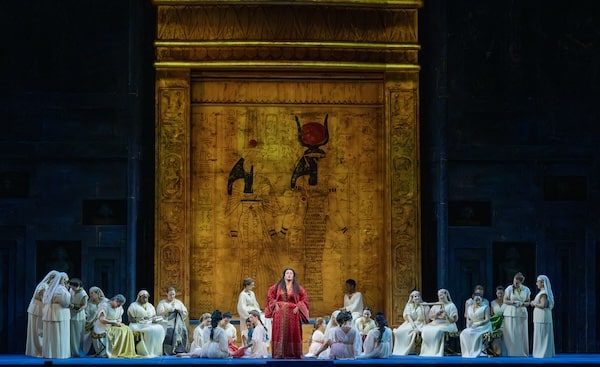Another Curtis triumph? Here’s how it’s done
mainEric Lu, a Curtis student, won the Leeds Piano Competition last night.
Just in time for the last section of our Fortnightly Book Club focus on Curtis.
Here’s our moderator Anthea Kreston:
Welcome to our final Fortnightly Music Book Club installment on the topic of the Curtis Institute of Music. The Fortnightly Music Book Club has a rotating, international group of hosts, and covers a wide range of topics.
In this segment, we have a final video Interview of our guest host, Roberto Díaz, President and CEO of Curtis. Topics covered are the founding of the Settlement Music School in 1910, an institution which offers free music education to the underserved in Philadelphia, and the expansion of that design in 1924 to an older, but still free institution named after the founder, Mary Louise Curtis. The recent donation of 55 million dollars by Nina Baroness von Maltzahn, which is the largest single gift to an American Music School – how did this come about, and what has it done for the school? Powerhouse‘s Investigation into the „performance gap“ at Curtis, and finally, the musician as global ambassador.
We are reading from Powerhouse (MacNeice/Bowen) to learn about the unique business structure. Memoirs of Gary Graffman – I Really Should be Practing – and Rudolf Serkin – A Life, both former Presidents of Curtis, give us historical perspective.
We heard from the Serkin family last post, and for some Graffman words, I direct you to this lovely, candid interview. http://slippedisc.com/2018/09/gary-graffman-nearing-90-never-misses-a-lesson/
Stay well, and see you in a Fortnight, when we will be hearing from guest host composer Bruce Adolphe (you may know him from Performance Today’s Piano Puzzler and Lincoln Center) what we will be reading next. As always, emails can be sent to: fortnightlymusicbookclub@gmail.com






There’s no question that the standard at Curtis is high. However, when considering the high level and selective process just to be accepted is it really accurate that Curtis *produces* these musicians? When one reads the bios of many excellent Curtis trained musicians, there are often names from other institutions where the students were trained for years, like Juilliard Pre-College, New England and Cleveland Prep, and Young Artist Program, and various other “middle schools” from China, Korea and other countries—also of course notable teachers who have trained students to reach the point where they could be accepted to Curtis. The concept of “potential” doesn’t seem to ring with students accepted to Curtis, they are already at a high level. So the question is, especially as many of Curtis faculty teach elsewhere, is it fair to say Curtis triumph? One of the winner’s current teachers, Dang Thái Son (a Moscow Conservatory grad and esteemed pianist who teaches at Oberlin Conservatory) does not teach at Curtis. The student who attends Curtis won, but what is the significance of highlighting the point where one studies?
Gerry – this is an interesting point, and one which is central to the book discussion. We cover this in th video – something called „Performance Gap“. I myself transferred to Curtis from the University of Minnesota (where I went from age 16-18). I found myself surrounded both by the people you describe above (all of whom had achieved much, but all through hard, consistent work) and those like myself – first chairs in our high-school and youth orchestras, and ready to take the next step.
Well, you see, Ms. Kreston, that was a different time. Today there are more players playing at a higher level. The idea of a high school orchestra violinist in America making it in is much slimmer, if it was ever even possible. You say you were enrolled in university at 16, so you of course were some sort of exception and probably didn’t spend much time in your high school orchestra anyway, right?
The best of Curtis’s students would probably match the best of any of the major schools. What separates Curtis is that, to my understanding, the “potential” on display at the critical entry exam is not considered the way it is at other institutions. The smaller student body, limited degree offerings, and generous fellowships make for a competitive situation. Curtis students, thus, maintain a high level of playing; you can judge the quality based not on the strongest but the weakest, for lack of a better word. Today, the string programs at NEC, Juilliard, Colburn and elsewhere in the US have outstanding young musicians, particularly in strings and piano.
On the other hand, those institutions also, to a greater degree probably, to some degree measure “potential” more at the entry exam, and require a less demanding entrance repertoire.
But please consider the point. In this day and age, how much does where one studies really matter? And, when a school like Curtis has such high demands for entry, how can anyone judge the impact of the school? There are many competition winners coming from Curtis these days—of course entry into Curtis is also a kind of competition—yet I’m still wondering where are the strongest musical voices coming from? It seems everywhere. Visiting Berlin Hochschule and hearing the tremendous level of string playing was an unforgettable experience; same for Hannover in piano, etc.
I sit on the sidelines. On this site the name Curtis holds a lot of weight. I understand it. The school’s traditions, its musical attitude. President Díaz has done a lot to bring Curtis down to earth, all for the better, in my opinion. The summer program, the events above, the touring. But it does change the perception. Many students today are far more aware of the music worlds across the oceans. They see the masterclass clips and follow players and can name teachers of so-and-so. Students today seem mostly interested in teachers, not as much institutions. As I posted before, many of the faculty at Curtis teach elsewhere. So, I wonder…what is the significance of directly associating a competition triumph with an institution?
When we see the young players at, say, Menuhin Competition—if they were to move along to Curtis, as some have, is it a surprise that they are already playing at a high level?
Hi Gerry –
All good points – thanks! It is true that I was a high-achiever, and had won National competitions along the way and was already comfortable playing concertos with orchestras. I just meant to say that I was, in a lot of respects, a normal high-school student, who did gym class and social studies and all that. In my year, there were 4 openings, and three days of live auditions for violin – that was after the audio/recommendation/CV round. I think 60 made it to the live rounds (1 Mozart and 1 Romantic concerto, several Paganini, a Bach Partita or Sonata, a violin/piano sonata, and an interview). Stakes were high then, and they are high now. I think the difference is the performance gap. At other places there are also exceptional students, but there are, in addition, less exceptional ones. At Curtis, there are only exceptional ones. They have one tuba player. That means one opening every 4-6 years. They have had a grand total of 19 tuba players graduate in the history of the school. I have been going back in the summers, and I am always blown away by how different it is from any other place. I teach at several incredible institutions over here in Europe, and they all have their special qualities, but nothing like Curtis. It is one-of-a-kind.
With all due respect, Ms. Kreston, you articulate your points clearly but you’re also reiterating many things I wrote in my reply. Curtis does in fact, by design, have exceptional students, the question is how exceptional were they before arriving, during studies, and after? If we are to give credit to an institution, is it because it has trained these musicians to be exceptional? Could it be the case that exceptional things would happen to them at another institution? Curtis, with its rigorous entry exam, demands a high level of playing the moment the student walks into the audition space. To stand out from all of the other candidates who’ve made it to the live round, they must really shine. Curtis did not in anyway prepare them for that audition—it was largely the concerted efforts of a good teacher, hard work, talent (to some degree) and, increasingly so, a large bank account to afford the prerequisite investment of time and money necessary to achieve all of these things in 2018. Your case may be one way—every year applicants are different—but this isn’t the 1990s, and the music world has vastly changed.
The fact that one tuba student is accepted every X number of years is simply by design.
Consider for a moment the standard of players at Curtis vs those at, say, Kronberg. I rest my case in that regard.
When I look at the world of music and I follow the classical news, here and there, I see and hear the most interesting musicians. Where they studied and what competition boosted their career is not particularly a topic of conversation because they are exceptional on the world stage. Today, unlike in the 1990s, winning a major competition guarantees virtually nothing. There are countless competitions each year, streamed for all to see and hear. Would it be a surprise that some players are just good at playing competitions? In some case that would be a fair assessment. What it boils down to is, in my humble opinion, that an institution that requires a high level of entry accepts and attracts students whose high caliber of playing has accepted students already prepared for many of the initial challenges of a music career. The title of this post, which maybe you did or didn’t write, seems to conclude that Curtis trains students to win competitions, as implied with “triumph” and “here’s how it’s done”. What I read, upon a bit of research was that an exceptional young player received exceptional training from excellent teachers in Boston and auditioned for Curtis and was accepted in his teens. He studies with two teachers at Curtis and one outside of Curtis and has won a number of competitions since his first year at the institute. Time will tell if his competition successes result in a major worldwide career. Lang Lang and Yuja Wang are probably the most famous Curtis pianists, and competitions were not really a thing they did at Curtis. Two years before attending Curtis, Lang Lang won the International Young Tchaikovsky Competition for Young Musicians, among others including the Ettlingen (Germany) Competition for Young Pianists, which Eric Lu also won three years before entering Curtis—Wang Yuja received 3rd prize in 1998, four years before entering Curtis.
The music world has changed. Yes, there may be a student who has a relatively normal high school education and can impress the Curtis faculty, but that is not the case musicians, particularly those in strings and piano, of today would recognize.
Curtis has graduated many outstanding musicians, and remains a powerful force in music, and has largely kept its classic approach. I cannot disagree with that. A music lover myself, I could only wish to have visited Philadelphia and heard the orchestra in person and attended a student recital.
I respectfully ask once more, how much credit should be given to an institution? In the prize ceremony at Leeds, Mr. Lu thanked all of his piano teachers, from his early training to the present.
The Curtis Institute doesn’t have the guts to publish the list of students they’ve rejected over the years – and that list includes Van Cliburn.
Hi La Verita,
They are probably, legally, not allowed to. I know of people who won the Tchaikovsky Competition who were rejected. It is the hardest school in North America to enter – harder than Stanford or Harvard. It is a brutal, unforgiving audition process. But the administration and staff are very welcoming and helpful.
Gerry, you’re not incorrect to credit pre-Curtis training and influences, but the unanswerable question is, would the graduates’ successes have been possible without Curtis? Even acknowledging that many Curtis graduates have failed in the professional world, and that many non-Curtis musicians have succeeded, the Curtis factor is immeasurable for those who have benefitted from its association. Today, talent abounds at all levels and all locations, but very few parlay that talent into meaningful careers. Entrants to Curtis may be already very talented, but none are ready to handle the repertoire and critical scrutiny that come with a big time career. Even in cases when students enter at an advanced age (16-18), Curtis serves as an incomparable finishing school that prepares their students for the demands and rigors of a professional career. That “last mile,” could be the difference between success and failure as a concert artist today. Talent is table stakes in this business, and talent alone does not a career make. So, should Curtis be given all the credit? No, but it’s arguable that Curtis, and everything it means to be a Curtis graduate, was a significant contributor their successes.
With greatest respect, the situation is rather different today Anthea. The overall level of playing in the world has increased considerably in the past 10 years — or in the last five years! The students entering Curtis now are not “first chairs” in “high-school and youth orchestras.” In some cases, the students admitted today are world celebrities of classical music, before they reach Curtis. Eric Lu is a perfect example. Fascinating as well is how it seems New England Conservatory is completely overtaking Juilliard in the areas of piano and violin. (Eric Lu was really formed at NEC it seems.) It is a rapid shift. And as the whole scene is changing so quickly, maybe only the young musicians themselves really understand the nuances of each school’s strengths…
The teacher makes the artist, not the school.
I’m shock-Eric Lu’s the winner of Leeds competition? This mediocre, immature pianist that I walked out from his recital in San Francisco. The winner of previous Leeds competition was also not a great talent.
If you don’t recognise his talents, but the likes of (for example) Lucy Parham and Noriko Ogawa do, then perhaps it’s your judgement that’s faulty?
It’s impression from attending Eric Lu recital, my friend had the same. Maybe the level of competitors wasn’t high. Have you been to Eric Lu recital lately?
Did you get bested by Eric at a competition? Or are you just a jealous, whiny bitch by nature? Or, maybe it’s a bit of both?
Get over yourself.
As a European, I am not familiar with all the ins and outs of musical education in the United States. But judging by what comes out of the USA in the way of talent, I can happily conclude that classical music is alive and well across the Antlantic! GENS UNA SUMUS, that I know!
The before and after comparison that I’ve been privy to with a number of people i know who went to Curtis in recent years suggests to me that yes, Curtis should get quite a bit of credit. And I think from the discussions I’ve had with some of them, they would agree. It isn’t just a matter of having the right teacher (most of the faculty teaches elsewhere as well) but the whole experience is more supportive, while still putting the students in a group unlikely to be bettered anywhere. You don’t take lessons in a vacuum.